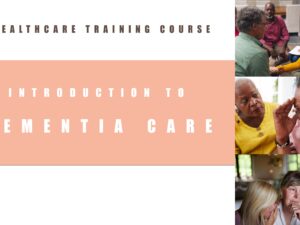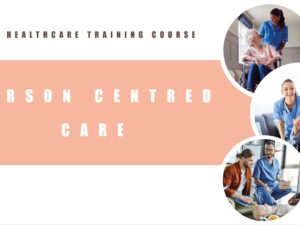Introduction to Supported Living
Supported living is a type of care that enables individuals with disabilities or complex health needs to live as independently as possible in their own home or within a community setting. Providing high-quality care in supported living settings requires specific skills and knowledge, which is why training is essential for staff working in this sector. The Supported Living Health Care Training Course is designed to equip health care workers with the necessary skills to provide safe, person-centred care to individuals living in supported living settings in the United Kingdom.
Course Overview
The Supported Living Health Care Training Course is a comprehensive training program that covers all aspects of supported living care. The course is designed for health care professionals who work in a supported living setting or who are looking to enter this sector. The course will equip learners with the necessary knowledge and skills to provide high-quality care to individuals with complex needs.
Course Objective
The objective of the Supported Living Health Care Training Course is to provide learners with the knowledge and skills to deliver safe, effective, and person-centred care in supported living settings. By the end of the course, learners will be able to:
- Understand the principles of supported living care.
- Understand the legal and regulatory framework governing supported living care.
- Understand the specific health care needs of individuals living in supported living settings.
- Understand the importance of person-centred care and how to implement it in practice.
- Identify and manage risks associated with supported living care.
- Communicate effectively with individuals and their families or carers.
- Work collaboratively with colleagues to deliver high-quality care.
The Supported Living Health Care Training Course is a comprehensive training program designed to equip health care workers with the knowledge and skills to provide safe, effective, and person-centred care in supported living settings. By completing this course, learners will be able to provide high-quality care to individuals with complex needs, ensuring that they can live as independently as possible in their own home or within a community setting.
Assessment and Certification: The course will include assessments such as quizzes, case studies and evaluate learners’ understanding of the course content. Upon successful completion of the course, learners will receive a certificate of completion, which can be used as evidence of their training in Supported Living.
-
1Principles of supported living care
By adhering to these principles, supported living care providers create a nurturing and empowering environment that recognizes and celebrates the uniqueness of each individual while fostering their independence and overall well-being.
-
2Types of supported living settings
Supported living settings cater to the diverse needs of individuals with disabilities or complex care requirements, offering a range of options to promote independence and community integration.
-
3Roles and responsibilities of health care workers in supported living settings
Healthcare workers in supported living settings play a crucial role in providing person-Centered care and fostering an environment that promotes independence and well-being.
-
4Module 1 QUIZ
-
5Key legislation and regulations governing supported living care
Understanding and adhering to these key legislative frameworks is essential for healthcare workers in supported living settings to provide care that is not only person-Centered but also legal and compliant with established standards.
-
6Policies and procedures for ensuring compliance
Establishing and adhering to comprehensive policies and procedures is crucial for supported living settings to ensure compliance with legal and regulatory frameworks.
-
7Importance of confidentiality and data protection
Confidentiality and data protection are critical aspects of providing ethical and legal care in supported living settings. These principles ensure the privacy, dignity, and security of individuals receiving care.
-
8Module 2 QUIZNavigate the legal landscape of Supported Living Care with this quiz.
-
9Common health care needs of individuals in supported living settings
Understanding the health care needs of individuals in supported living is essential for providing personalized and effective care.
-
10Strategies for managing complex needs
Managing complex needs in a supported living setting requires a comprehensive and tailored approach to address the unique challenges individuals may face.
-
11Medication Management
Medication management is a critical aspect of healthcare in supported living settings, ensuring the safe and effective use of medications by individuals with diverse health needs.
-
12Module 3 QUIZTest your knowledge on the diverse health care needs within Supported Living settings.
-
13Definition and importance of person-centred care
Person-Centered care is an approach to healthcare that prioritizes the individual's unique needs, preferences, and values. It involves treating each person with dignity, respect, and compassion, and actively involving them in decisions about their care.
-
14Strategies for implementing person-centred care in practice
Implementing person-Centered care in practice requires a comprehensive approach that involves both organisational and individual strategies.
-
15Effective communication with individuals and their families or carers
Effective communication is crucial in supported living settings to ensure individuals, their families, and carers are well-informed, engaged, and empowered.
-
16Module 4 QUIZEvaluate your comprehension of person-centred care essentials.
-
17Identifying and managing risks associated with supported living care
By implementing a comprehensive risk management approach that involves proactive identification, thorough assessment, and effective mitigation strategies, supported living settings can create a safer and more secure environment for individuals in their care.
-
18Strategies for promoting safety and wellbeing
Promoting safety and well-being in supported living settings is a multifaceted task that requires a combination of organizational policies, staff training, environmental considerations, and individualized care plans.
-
19Reporting Incidents and Accidents
Reporting incidents and accidents in supported living settings is crucial for ensuring the safety and well-being of individuals and for maintaining a transparent and accountable care environment.
-
20Module 5 QUIZGauge your grasp on risk management within Supported Living Care.
-
21Importance of teamwork in supported living care
By emphasizing the importance of teamwork in supported living care, the module aims to create a collaborative and supportive environment that enhances the well-being of individuals and fosters professional growth among team members.
-
22Effective communication and collaboration with colleagues
Effective communication and collaboration with colleagues are essential in supported living care settings to ensure the well-being of individuals and maintain a positive work environment.
-
23Roles and responsibilities of different team members
In supported living care settings, different team members play crucial roles in ensuring the well-being of individuals. Each role comes with distinct responsibilities that contribute to the overall functioning of the team.
-
24Module 6 QUIZAssess your understanding of the pivotal role teamwork plays in Supported Living Care.
We've attached exercise files to the course, providing examples for each activity. Download them to get a clear idea of how to approach your exercises. These files will serve as helpful guides, enhancing your learning experience.
Happy studying!



